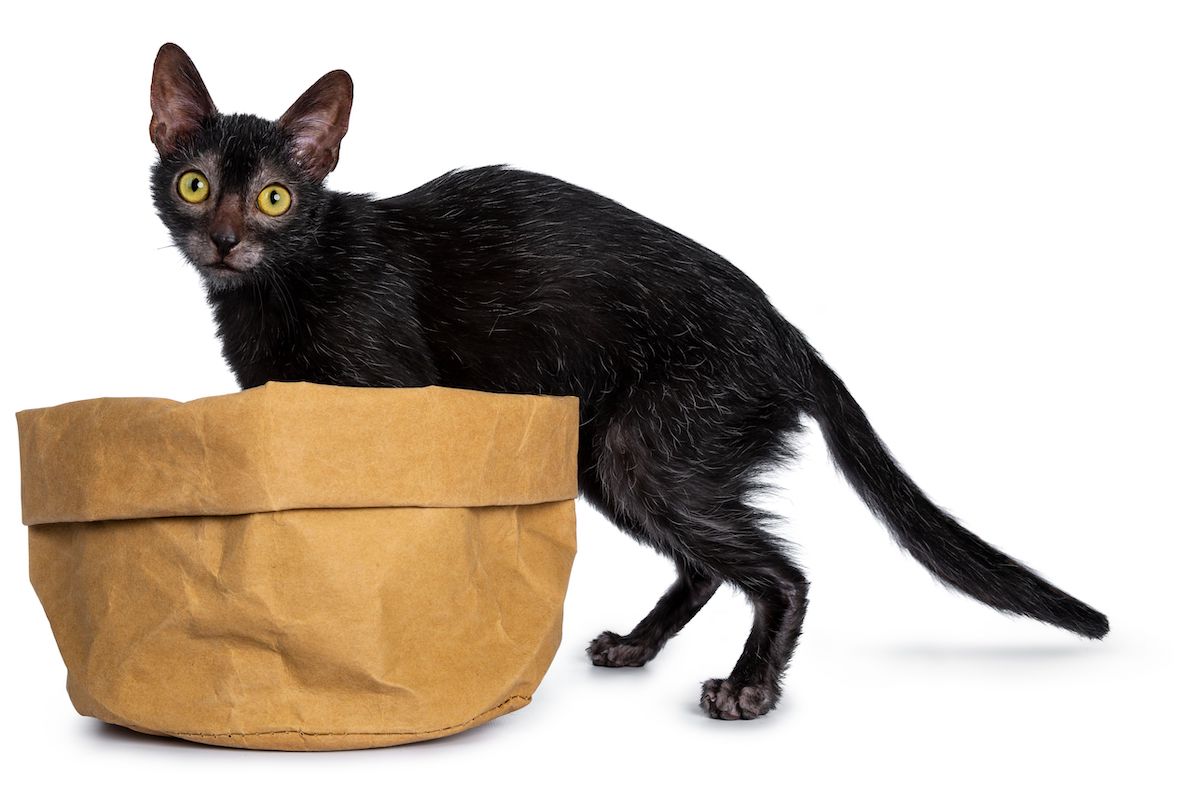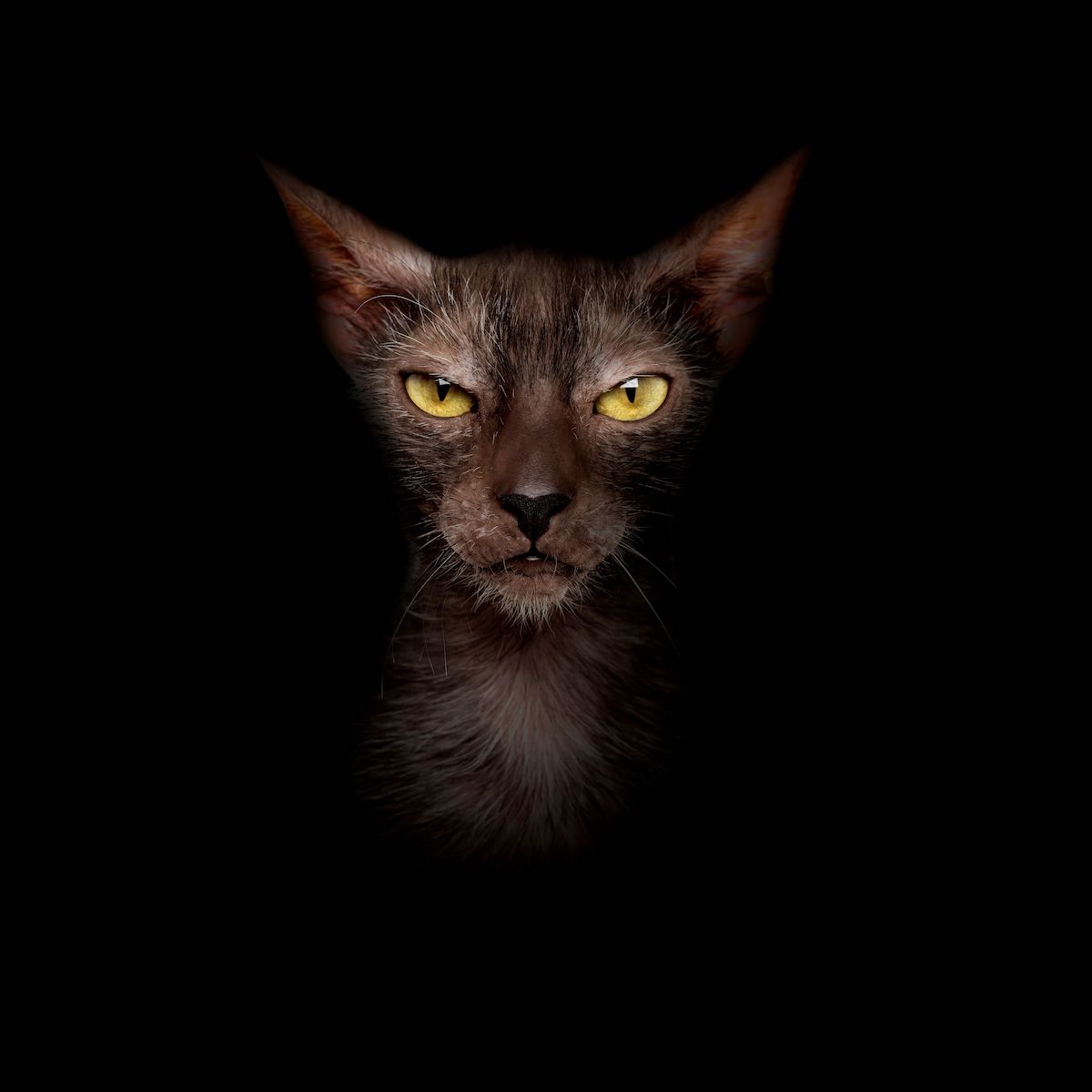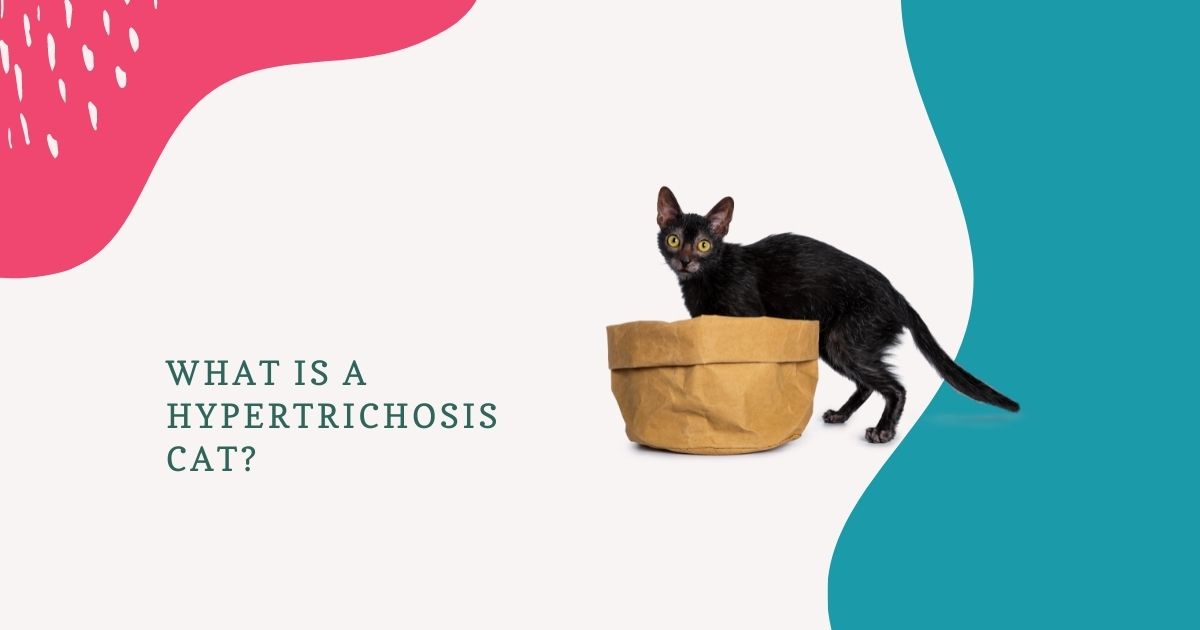Have you ever seen a cat with so much hair that it looked like a little bear? A hypertrichosis cat is a scarce feline breed with more fur than the average housecat. A genetic mutation causes the condition, and there are only about 100 known cases globally.
These cats have been found in many breeds, including the Persian, Maine Coon, and American Shorthair. They’re also called “werewolf cats” or “shaggy cats” because they look like miniature versions of wolves or bears!
Read on to learn more about these furry friends and what makes them unique.
Atchoum The Werewolf Cat
Atchoum is currently the most famous of all shaggy cats. He’s a Maine Coon mix who lives in Montreal, Quebec, Canada, with his human family. When Atchoum was about six months old, he started growing long hair on his face and body; but his human mom took him to the vet anyway.
Atchoum’s human mom says his hair is so fine that it doesn’t hurt him at all, but if he didn’t have the condition, he would probably be very uncomfortable.
His fur grows to two centimeters long (0.787 inches), and he has a very thick waist. He’s been featured in many news sources worldwide, and he even has his own Facebook page called “ Atchoum Fan Page – We love Atchoum ” with almost 20 000 likes.
His human dad says Atchoum acts just like any other cat, and he’s very cuddly. Unfortunately, because of his condition, his humans have to brush him every day to prevent matting – but even with all that hair, he can still fit through a regular-sized pet (cat) door.
What are the Causes of Cats With Hypertrichosis?
Hypertrichosis is caused by a genetic mutation in the cat’s DNA. As a result, their bodies grow more hair than usual, and that excess fur can be found all over their body or just on certain parts of their face or limbs.
The condition doesn’t cause any other problems for the cat, but it can lead to severe conditions if not treated. If you notice your pet has excessive hair growth on its body and face, take them to a vet right away.
How are Hypertrichosis Cats Different From Others?
Hypertrichosis cats are just like any other pet cat. Their extra hair is more of a novelty than anything else, and it doesn’t hurt them at all.
They might be different from other cats because they grow lots of long furs, but otherwise, they behave normally and live very happy lives with their families. Just keep in mind that their fur needs to be brushed and taken care of just like any other cat because they have extra hair.
The History and Origins of the Lykoi Cat Breed
Hypertrichosis is not a recognized cat breed, but the occurrence can be found in several breeds. One breed with the condition is the Lykoi Cat Breed, or “werewolf cat,” because it resembles wolves! Lykoi cats are pretty much like regular house cats; they just have extra hair, which means they need more grooming and attention.
They were discovered in 2010 when a black kitten was born to a domestic shorthair mother and a domestic shorthaired father with wildcat ancestry.
The kitten was adopted by a veterinarian named Johnny Gobble and his wife Brittney, who were interested in breeding Lykoi cats. They brought the cat to a Missouri veterinary school for DNA testing, confirming its wildcat ancestry. The first-ever litter of Lykoi kittens was born in 2012, and more litters have been born since.
The breed is still in development. The veterinarian Johnny Gobble and his wife are making many improvements to ensure that their Lykoi cats have a standard quality of life with all the benefits of being a cat with hypertrichosis! The Lykoi cat breed can usually be identified by its black or dark gray fur and distinctive markings on the face and legs.
Since this discovery, breeders have been trying to perfect the breed. Lykoi cats must be carefully bred from the healthiest and best-looking specimens like other breeds. They can be a bit more expensive than a regular pet cat because of their scarcity – but they make up for it by being beautiful pets who love attention!

Physical Characteristics of a Werewolf Cat
Lykoi cats are almost like regular housecats; only they have extra hair on their head and tail. Because of this excess hair, they can be mistaken for other breeds like Maine Coons or Norwegian Forest Cats at first glance.
But upon closer inspection, Lykoi cats have facial markings that resemble a maned wolf! Their fur is also unusually soft and silky, distinguishing them from other breeds.
They behave like regular cats for the most part, but they tend to be more energetic than your average pet cat. They love climbing high up in trees or on top of couches, so you might want to invest in some sturdy furniture covers before adopting one.
Like regular cats, Lykoi cats go through a “kitten phase” where they might play rough or bite. This is their way of testing out the boundaries with their new family.
As for grooming and upkeep, you’ll need to brush your pet cat’s fur daily (or more often if required). Their extra-long hair can get tangles and mats if not brushed enough, so it’s essential to keep up with the extra hair.
Regular pet cat food will be just fine for them, but you might need to give them some special supplements like vitamins to make sure they stay healthy and energetic.

Personality and Temperament of a Lykoi Cat
Like any other cat, Lykois have a unique personality of their own! They can be a little more energetic than your average pet cat, so they may need to burn off some energy before settling down. Because of this playful nature, you might want to keep them in secluded areas where they won’t be able to get into too much mischief.
Although they have excellent show-ring potential, Lykoi cats aren’t necessarily the best choice for families with young kids. This is because they may be more energetic than other breeds and accidentally scratch a child while playing.
If you want to get a pet cat for your family, you might want to consider getting a friendlier breed like a Maine Coon or an American Shorthair.
Lykois are also known to be quite vocal when they want your attention. They might meow and pounce on their owners for affection and playtime, so it’s essential to make sure you’re giving them enough one-on-one time.
As with other felines, Lykoi cats will develop a solid bond with their owners if they’re given enough attention and affection.
The Living Needs and Care of a Wolf-Cat
Due to their delicate coat, Lykois are only suggested for indoor living. Keeping them away from both the cold and direct sunshine will promote your Lykoi’s health and happiness.
They love to mimic their ancestors’ scratching and claw-sharpening behaviors, so providing them with a scratching post or twoit is essential to provideis essential.
They’ll scratch on anything, so make sure they have an area where they won’t be able to damage your couch or sofa.
Some cat owners also like to spray their pets with water when they act naughty, but this can sometimes stifle their playful nature. Keep in mind that Lykois are highly energetic cats, so they might need to be kept busy or get bored and become destructive.
Stimulate your cat’s mind by placing toys near their scratching posts. They’ll love chasing after those toy mice. It also helps if you reward them with treats when they behave well around the house. And make sure you give them lots of attention when they do something right.
Before adopting a Lykoi, remember that these cats are more high maintenance than other breeds. In addition, they have long hair with a silky smooth texture, so they’ll need daily grooming and brushing sessions.
You’ll also need to provide them with plenty of toys or scratching posts to keep their sharp nails from tripping up your feet!
The Lykoi cat is a wonderful breed that’s playful, adventurous, and free-spirited. These traits make the Lykoi unique compared to other domesticated cats. Just remember to provide them with lots of stimulation inside so they won’t become bored and destructive.
If you provide them with enough affectionate pats and attention, they’ll grow into a loyal companion that you can enjoy for years to come.
Lykoi Cat Health Information
Since the Lykoi is a relatively rare breed without a standard of its own, some vets may not be familiar with it. Therefore, it’s crucial to find a vet specializing in feline care before bringing home your new pet.
The health concerns for this cat include :
Hypertrichosis: This is why Lykois have such a unique coat. In some cases, it can exaggerate their facial structure and make them appear more wolf-like than cat-like!
Hypokalemia: While rare, this condition brings extreme weakness and fatigue in cats. It’s caused by a potassium deficiency and can be prevented through dietary changes.
Retinal Dysplasia: This condition causes malformation of the retina and can lead to blindness if left untreated. It’s more common in purebred cats like the Lykoi, so make sure you get your kitten checked for signs of retinal dysplasia before you bring them home!
Alopecia Universalis: This is a condition where all the hairs on an animal’s body fall out. It can be triggered by stress, diet changes, or illness.
Cardiomyopathy: Lykois are susceptible to this disease which causes inflammation of the heart muscles. It can lead to heart failure if it isn’t diagnosed and treated early.
Hyperthyroidism: This is a condition where the thyroid gland overproduces hormones, leading to weight loss and other health problems. It’s not common in Lykois, but it’s still important to watch for signs of the disease if you own a Lykoi.
Interesting Facts About Werewolf Cats

Here are some of the exciting facts about werewolf cats:
They Change Colors
Lykoi kittens are born with a gray and brown coat that will darken as they age. The color of their fur can also change depending on the seasons.
Mother Nature Created Them
This breed was created by natural selection, not human intervention. A gene mutation allowed them to develop coats like this.
Lykoi Cats Are Almost Entirely Hairless
This breed is unique because they lack most hair that other cats have. In fact, the only two places where Lykois have fur are on their head and tails!
Their Eyes Change Colors
The pupils in Lykoi’s eyes will change color depending on the lighting conditions around them. They’ll often appear to be green or blue during bright daylight hours. When the sun goes down, their eyes will take on a yellowish-gold color instead.
They’re Not Always Affectionate
Lykois can be very affectionate, especially with their owners! But they don’t always get along well with people and pets they aren’t familiar with.
They Are Excessive Shedders
If you’re looking for a kitty that requires minimal grooming, this breed is not the right choice for you. Lykoi cats shed an enormous amount and will need daily brushing sessions to keep their fur from getting tangled. You may also need to give them frequent baths if they don’t cooperate with their grooming sessions.
They Don’t Like Loud Noises
Loud noises such as thunderstorms or fireworks can frighten your Lykoi and make them feel uncomfortable. They’ll need lots of pats and reassurance to get through it!
They Like Short Walks
Unlike other cats who like lengthy chasing sessions, Lykois prefer shorter walks and activities. This is because they were bred from feral cats, so their ancestors only favored short distances at a time.
They’re Smart
Lykoi cats are brilliant and can often solve problems on their own when you’re not watching! They love to be challenged, so give them puzzles or other mechanisms to keep them busy during the day.
Key Highlights
If you’re looking for a kitty with a ton of personality and slightly more exotic than the average cat, a hypertrichosis cat may be perfect for you!
These cats are known as “werewolves of the feline world” because of their unique appearance. You can find these beautiful creatures in many colors, including black, brown, white, and orange fur.
Their coats will grow all over their bodies except on their paws and faces, where they remain short-haired instead. They also have a long lifespan, making them great pets for families who want to share their lives with animals.
If you’re looking for something new or exotic in your life, this might be the perfect pet!

